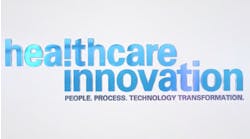The global predictive genetic testing and consumer/wellness genomics market is anticipated to reach $4.6 billion by 2025, according to a report from Research and Markets.
According to the report, key drivers attributing to the market expansion include rising awareness pertaining to the use of genomic tests for the prediction of gene susceptibility for probability of disease development. Genetic data in the ecosystem increases when consumers buy direct-to-consumer genomics products or participate in clinical research trials.
Rising encouragement for the use of these products is anticipated to propel industrial growth. Expansion in the range of consumer genetic tests by market entities is anticipated to fuel progress in the market in the coming years. Introduction of novel platforms anticipates the DNA-powered applications thus rising market penetration.
Moreover, according to the research, the pharmaceutical companies are also engaged in partnerships with genomics companies in order to develop novel therapeutics on the basis of genotypic and phenotypic correlations. For instance, in April 2016 a 10-year deal was signed between Human Longevity Inc. (HLI) and AstraZeneca, in which HLI is supposed to sequence 500,000 genomes of the clinical trial population of AstraZeneca. This data is to be used for the identification of novel drug targets. The deal also provides AstraZeneca with access to the proprietary knowledgebase in order augment biomarker discovery, and facilitate drug development.
Further noteworthy findings from the study include:
- Application of genetic susceptibility tests in gynecology and endocrinology, is of great interest thereby resulting to higher adoption.
- These tests enable the identification of the susceptibility of genes towards postmenopausal osteoporosis, adenomyosis, and endometriosis.
- Breast and ovarian cancer based predictive testing accounted for the largest share owing to the rising use of susceptibility testing for BRCA mutations cancer prediction.
- Government and pertinent organizations are engaged in endeavors aimed at curbing cancer-related healthcare expenditure by encouraging patients to undergo regular diagnostic examinations.
- Key players contributing in this market are BGI, Illumina, Inc, Pathway Genomics, Genesis Genetics, 23andMe, Inc, ARUP Laboratories, Color Genomics Inc., and Myriad Genetics, Inc.
- These entities are involved in collaborations in order to develop their portfolio with respect to fragmented point-solutions across the genomics value chain.

